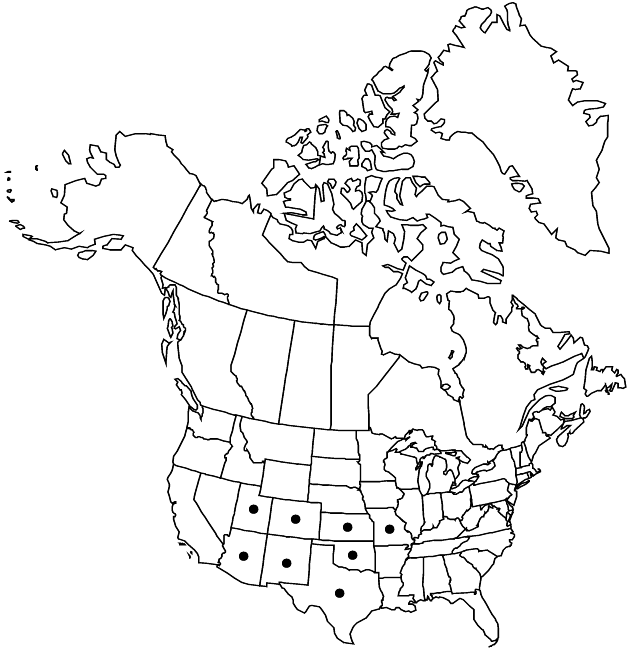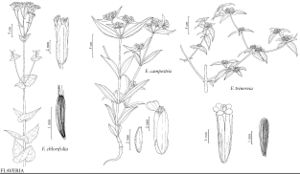Flaveria campestris
Proc. Amer. Acad. Arts 39: 287. 1903.
Annuals, 18–70(–90) cm (delicate or robust, mostly glabrous). Stems usually erect (tufted-pubescent at nodes). Leaves sessile; bladeslinear-lanceolate to lanceolate, 30–90 × 6–22 mm, bases barely connate, margins strongly to weakly serrate or spinulose-serrate. heads (10–)15–100+, in tight subglomerules in corymbiform arrays. calyculi of 2 linear-lanceolate bractlets 1–3 mm. involucres urceolate or oblong, 6–7 mm. phyllaries 3, elliptic, obovate, or oblong-obovate. ray florets 0 or 1, laminae yellow, ovate, 1.5–2.5 mm (apices notched). Disc florets 5–6(–8);, corolla tubes 0.8–1.3 mm, throats funnelform, 1.2–1.7 mm. Cypselae oblanceolate, linear, or oblong, 2.8–3.6 mm (those of rays longer by ca. 0.2 mm), pappi 0. 2n = 36 (18).
Phenology: Flowering May–Nov.
Habitat: Saline soils, lake, pond, stream margins, flood plains, and disturbed pastures
Elevation: 1000–1800 m
Distribution

Ariz., Colo., Kans., Mo., N.Mex., Okla., Tex., Utah.
Discussion
Flaveria campestris is distinguished by subglomerulate capitulescences with 5–6(–8) florets per head, subtended by 3 leafy bracts, keeled phyllaries, and linear-lanceolate leaves with serrate or spinulose-serrate margins, and its distribution. The prevalence of F. campestris fluctuates greatly from year to year, generally depending on the existence of wet, saline habitat.
Selected References
None.
